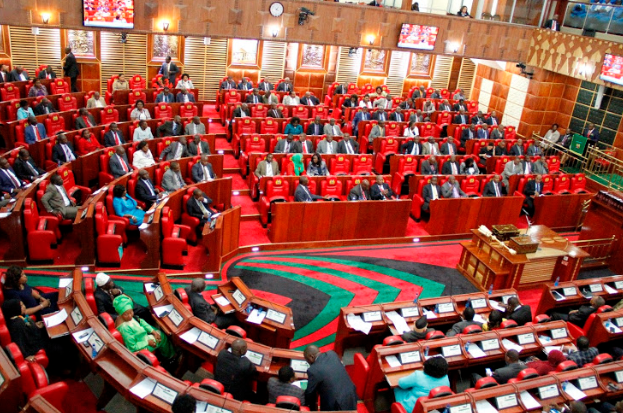The debate over the issuance of bursaries resurfaced in the House when a motion aimed at ensuring free and compulsory basic education for all was brought up for discussion. Just a month ago, Speaker of the National Assembly Moses Wetang’ula had requested the Ministry of Education to provide essential information and data to help formulate a policy for the distribution of bursaries.
He expressed hope that the new policy would promote fairness and equity in fund allocation.
“We have received a petition that notes that the current uncoordinated approach towards the issuance of bursaries and scholarships from public funds by the Ministry of Education, the National Government Constituencies Development Fund (NGCDF), and county governments has, in some instances, led to a duplication of awards,” Wetang’ula stated.
Chief Justice Martha Koome joined the conversation, asserting that education could become free if all government bursaries, loans, and scholarships were consolidated into a single fund.
During the week, MPs began discussing a motion seeking to reform the country’s education bursary schemes. Sponsored by Nairobi Woman Representative Esther Passaris, the motion aims to unify bursary schemes to enhance transparency, efficiency, and access to education.
“Education is a right, not a privilege,” Passaris declared while moving the motion.
The motion proposes merging all existing bursary schemes—including the National Government Constituencies Development Fund (NG-CDF), National Government Affirmative Action Fund (NGAAF), and other county and ward-based schemes—into one fund managed by the Ministry of Education. Passaris emphasized that no child should have to drop out of school due to financial constraints.
However, some MPs voiced their opposition to taking millions from the National Government Constituencies Fund. They also expressed reluctance to relinquish the National Government Affirmative Action Fund, which distributes around Ksh 1.5 billion in bursaries across the 47 counties. The NG-CDF allocates 35 percent of the Ksh 137 million, equating to about Ksh 48 million.
The MPs were resolute in their stance, stating they would not centralize the funds that have assisted numerous needy students in accessing education.
This development jeopardizes a parallel effort to amend the law to consolidate all bursary schemes and provide free education throughout the country. In a separate session, it was revealed that only half of the students had paid the necessary university fees, highlighting the challenges posed by the new funding model. Education Cabinet Secretary Julius Ogamba informed the National Assembly’s Education Committee that only 75,000 out of the 138,535 students placed in public universities had managed to pay their fees.
Meanwhile, MPs discussed a Bill aimed at establishing a comprehensive framework for the development and management of technopolis hubs nationwide. The Technopolis Bill (National Assembly Bill No. 6 of 2024) seeks to create the Technopolis Development Authority, which would oversee the planning, development, and governance of all technopolises.
Sponsored by John Kiarie (Dagoretti South), chairperson of the Committee on Communication, Information and Innovation, Kiarie stated, “As we speak today, Konza remains the only Technopolis in Kenya, but with this Bill, we can pave the way for similar hubs across the country. From Wajir to Mandera, we can establish these innovation hubs to drive technological growth and economic development.”



